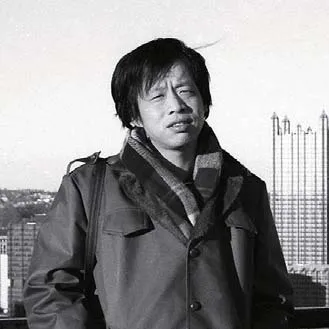When High Art Isn’t“High”
By Wang Xiaobo
When High Art Isn’t“High”
By Wang Xiaobo

Wang Xiaobo (1952–1997) is a renowned Chinese novelist and essayist whose masterpieces include “The Ages” trilogy (The Golden Age, The Silver Age, and The Bronze Age),Wang in Love and Bondage, and a collection of essaysThe Silent Majority. Wang’s wife, Li Yinhe, is thought by many to be the most representative sexologist in contemporary China.
During my years in the US, I once visited a friend who lived in Boston. When I met him in the evening, he told me that he was going to attend a concert of“free high art” in a nearby church, and that it would be his pleasure for me to join him.
I had no interest in such stuff. I was fatigued from a whole day’s drive, and not in a formal suit.
“Come on,” my friend said, “the concert is not that formal. It’s some music major instructors and students. Just stay awake and it’ll be fine.”
Not until we got there did I learn that they were playing two of Anton Bruckner’s symphonies. My friend brought me to the middle of the first row where even an act of yawning seemed inappropriate.
With the tunes so insipid and boring in my ears, I forced myself to stare at the stage where a reckless conductor was directing an unqualified orchestra to perform terribly. Oh God, this felt like seasickness. As a poor person who just drove for more than ten hours, in this stuffy and sweltering church, I thought a gentle touch at the back of my head could cause instant sleep. Anyway, I stayed awake from 7 to 9 p.m., and managed to restrain the strong urge to kill myself.
I don’t mean to be disrespectful to Mr. Bruckner, or classical music, in which I admit I lack good taste. But I think even in the field of high art, the level of performance is not always high enough. When performed poorly, high art can’t make you high. You may disagree with me, and cling to all forms and performances of high art, but soon, with your true senses, you will find yourself in trouble, and that you ask for it.
Another concert I attended was ruined by the performer’s level, regardless of my taste; of that I was quite sure. The concert was all about Bach, whose music I sincerely enjoy, though I always disregard the popular halo of any great name.
I attended the concert with my wife because we wereinvited by a student in her Chinese language class. The student played French horn in an amateur orchestra in Pittsburgh. Although the performance was not formal, my wife and I carefully dressed ourselves up. I put on a three-piece suit, and felt the vest was too tight. But as my wife said tighter clothes made me look better, I squeezed my belly (which was filled up with beef) into the suit. When I was done, my diaphragm moved upward one and a half inches, and I felt a little bit suffocated. Anyway, we went to the auditorium where the concert was to be held, and once again sat in the middle of the first row.
When the stage curtain rose and I saw the chorus, I suddenly had a terrible foreboding. There was one of our acquaintances on the stage.
She’s a classmate of mine in several courses, in her late 70s, and funded by US government’s “elders returning to campus” project. She didn’t do well in study, but was guaranteed to pass any exam. I thought that was reasonable. Well, it seemed she was also taking a new course in the music department and trying to sing.
I didn’t expect much, realizing the natural processes of her organs’ degeneration. However, I decided to be a concentrated listener before my classmate’s eyes.
Ah, they started to perform. Honestly, the amateur orchestra did a good job to keep in tune, and the man leading the chorus was good, too. Then it was the women singers’ turn. My acquainted lady made her lips into an “O,”beginning to sing “Hal-le-lu-jah”with her partners. Just one “Hal”was all it took for her dentures to fly out of her mouth, opening and closing as if trying to bite. It fluttered over our heads, and landed in the third row. As a side effect of this incident, the praising word now became “Hal-pooh.”
Without her dentures the old lady could not continue to sing; but being a member of a God-praising chor us on such solemn a stage she could not walk away at once. So she stood there, pretending t o b l o w from her shriveled mouth more musical notes. I gravely watched all this, and smiled and applauded when they finished.
God knows the great effort I fought against breaking into wild and vulgar laughter. I prevailed, though, and swallowed it down into my stomach. But sadly, the laughter quaked within me, and broke my bowels into pieces. In the succeeding three months, I often coughed badly to spit out a piece of my lung, or sometimes my liver. Only with the incredible vitality of youth did I survive this mangling of my organs.
(FromWang Xiaobo:The Best Collection as His Memorial, Beijing University of Technology Press. Translation: Wang Xiaoke)

